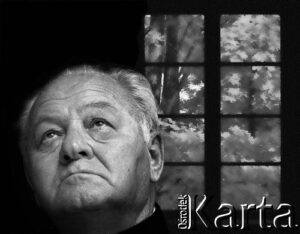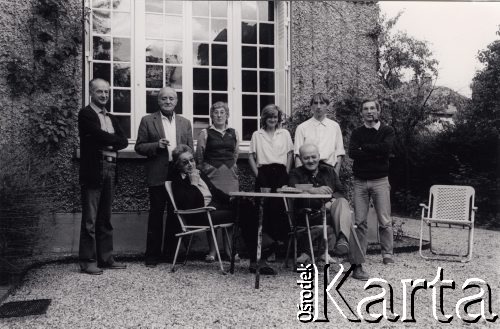
“I became convinced that a man can be human only under human conditions, and I believe that it is fantastic nonsense to judge him by actions which he commits under inhuman conditions as if water could be measured by fire, and earth by Hell.” – these are probably Gustaw Herling-Grudziński’s most famous words. They come from the author’s greatest work, that is from the book “A World Apart”. As a pisoner of Soviet labour camp, he found himself on the verge of life and death, so he knew what he was writing.
He was not allowed to fully enjoy the charms of youthful life. Already at the age of 20, in October 1939, he joined the underground to fight for the independent Poland, which had disappeared from the maps as a result of the German-Soviet attack in September 1939. Staying in the territories occupied by the Soviets, in March 1940 he found out that the NKVD was interested in him. He tried to escape to Lithuania but due to the smuggler’s denunciation, the Soviets arrested him. He was imprisoned in Vitebsk, where he was accused of trying to cross the border in order to conduct anti-Soviet activities. He was sentenced to 5 years in a labour camp. He ended up in Jercevo near Arkhangelsk.
The announcement in July 1941 of the Sikorski-Mayski Agreement and the “amnesty” constituting its part did not initially bring him freedom, so at the end of November he began a several-day hunger strike. For this reason, he was transferred to the mortuary, where prisoners unable to work were kept.
In January 1942, he was finally released from the labour camp. He joined the so-called Anders’ Army, with which he was evacuated to Iran in the spring of 1942. He took part in the Italian campaign. For the Battle of Monte Cassino, where he served as a radio operator in the 3rd Carpathian Rifle Division, he was awarded the Virtuti Militari War Order.
After the end of the war, he remained in exile. In 1951, his greatest work “A World Apart” was published in London. Two years later the book was also published in Polish (although not in Poland, but in London) as “Inny Świat”. Gustaw Herling-Grudziński died on July 4, 2000 in Naples.





